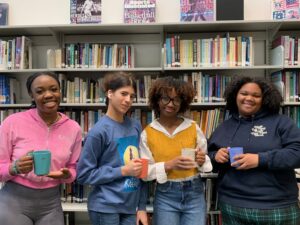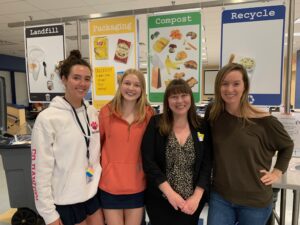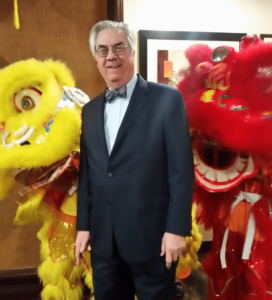2025 Youth Leaders for Glocal Impact Grant in Honor of Richard Lauf
The World Affairs Council is proud to continue the Youth Leaders for Glocal Impact Grant in Honor of Richard Lauf. We are so excited to provide students with the opportunity to make an impact on their community and develop their global awareness!
Who can apply?
Students, teachers, or student organizations
What do I have to do to apply?
GLOCAL is the main focus for this project: Think Globally, Act Locally. Support, expand, or strengthen or expand an initiative existing projects/clubs or create new initiatives that benefit your school or community based on the United Nations Global Goals. 
Step 1: Research ways to “take action” based on the UN Global Goals. Connect with a teacher to assist in your initiative.
Step 2: Write out your project description that aligns with the “take action” in your research. Make sure to look at the guidelines below for specifics.
UN Sustainable Development Goals
CLICK HERE TO SEE LAST YEAR'S PROJECTS
How much funding can you receive?
Five grants of up to $1000 will be awarded! Schools who applied last year are welcome to apply again.
About Richard Lauf
Rich was born and raised in Chicago, Illinois. He attended Lane Tech College Prep, an all-boy high school. He recalls his community as nationally diverse, most people originating from Eastern Europe, Hungary, Poland, and Russia. Many classmates were children of refugees. At the age of 14, he read the Chicago Tribune and was inspired to attend a speaker series with the French Ambassador.
From 1970 to 1971, Rich joined the Army as an infantry platoon leader. He refers to this period as the longest years of his life. “When you experience war firsthand, you gain a real appreciation for diplomacy,” said Rich as he recalled his experience in the Vietnam War. He was awarded the Combat Infantry Badge and the Purple Heart during his service there.
“As adults, we lose sight of what we wanted as young people. My first exposure as a 14-year-old, had a 50-year effect on me. We need to create a similar impact for today’s students, like the change in me those many years ago.”
After returning to the States, Rich moved to the corporate world. He started a career with Procter & Gamble in Green Bay, Wisconsin. He later served as an internal consultant where he worked with international subsidiaries. Through this experience, he was able to visit and improve planning efforts to cope with the hyperinflation in Venezuela, to deal with the economic crisis in Mexico, and to plan for the opening of the European borders by the Schengen Agreement.

When Rich moved to Cincinnati in 1983, he joined the World Affairs Council of Cincinnati and Northern Kentucky. He witnessed many changes occur within the Council as he transitioned from a council member to a board member to the Board Chair. Through the Council’s education programs, Rich also saw a potential for growth in capacity and outreach. “We have an enormous opportunity to affect students from K-12 and university. We can broaden, expand, and reach out to more schools, classes, and students.”
Rich and his wife often traveled to New York City, Chicago, and San Francisco to see operas, visit museums, and spend time with family. They traveled out of the country to fulfill their love of history and art by visiting historical and culturally inclined cities like London, Paris, and Vienna.
For 59 years, Rich devoted his time and passion to world affairs. Rich Lauf passed away in March 2022 at the age of 73. Through this grant, his optimisim for future generations and his dedication to diplomacy continues.
“I often think of the future of young people, the future of my nieces. I will never forget the 58,000 soldiers lost in the Vietnam War. I want better for the next generation. International understanding and readiness will make a huge difference.”


